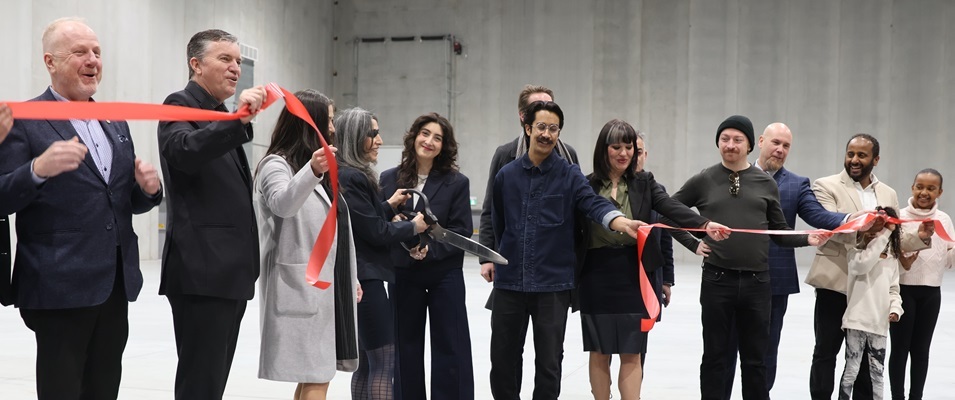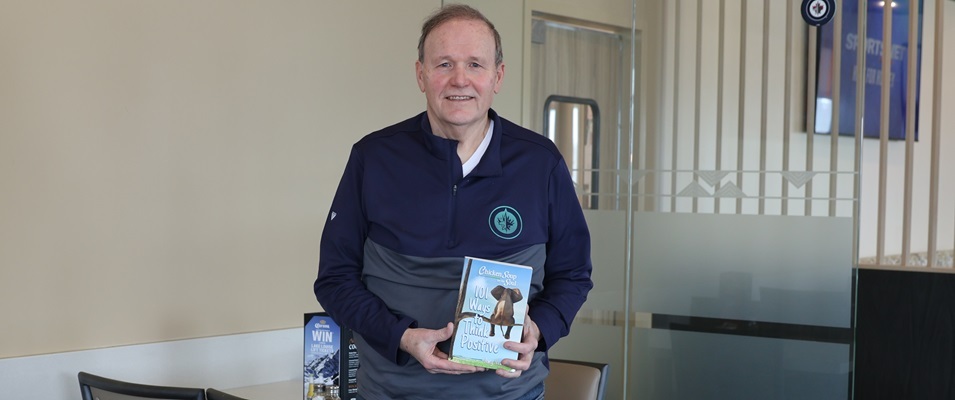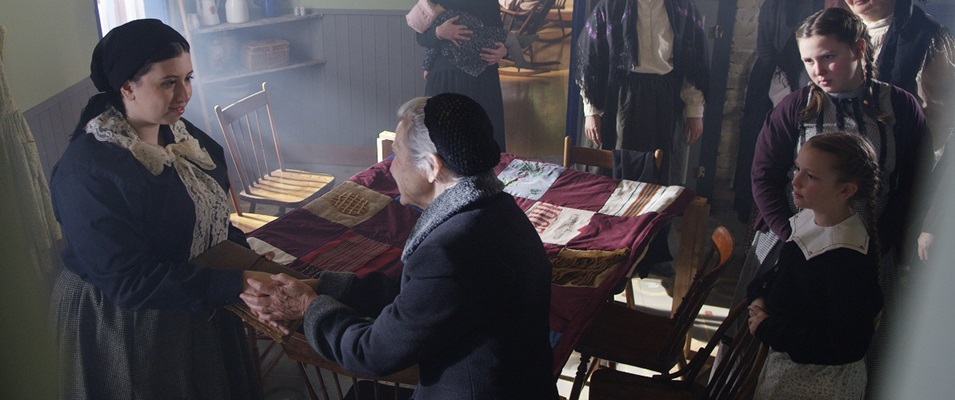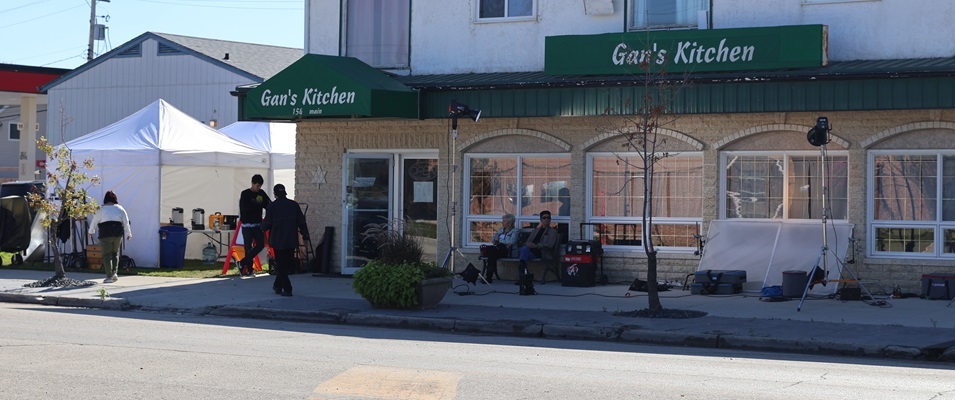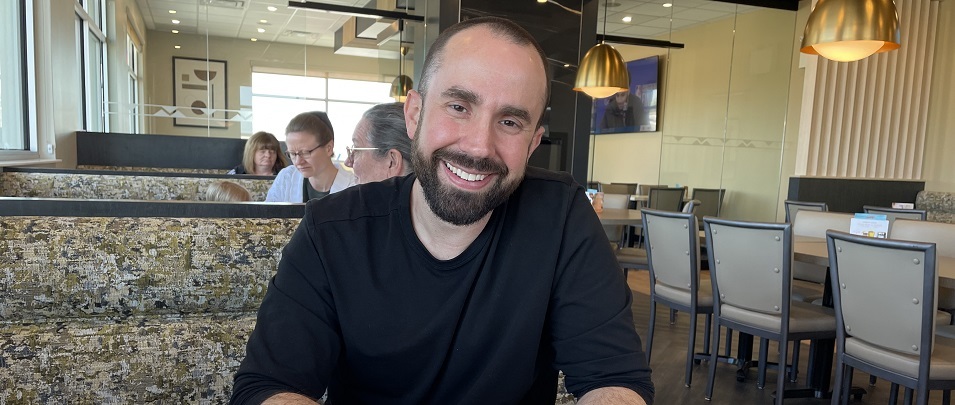
After moving to Niverville, writer and editor Trevor Martens found himself personally employed and working from home after leaving a teaching career in Winnipeg. Like many people, during the COVID-19 pandemic he needed to adjust his work-life balance in order to improve his mental health.
As an English teacher, creating and delivering lesson plans, grading papers, and acting as a positive role model for young people took up most of his waking moments—and creative energy.
When post-COVID budget cuts culled some of his preferred programming that served underprivileged students, he knew he needed to make a chance.
Without a business plan, he took the plunge and left teaching to work from home—or rather, from the newly opened Smitty’s restaurant in Niverville.
After a period of self-reflection, he felt his passion for creative writing returning. He writes works of prose based on personal reflection after observing day-to-day life.
“I like to show what’s going on inside of me, what’s going on underneath,” says Martens. “And if I see something or have a conversation with someone, then I sometimes see rich imagery there. It’s like a tempest-in-a-teacup sort of approach, where I take something small and blow it up.”
As a professional writer, he is yet to be published, but he says he’s working on it.
“I was going to be half-writing and half-editing, but other things happened,” says Martens.
The “other thing” is the business Martens started, called I Help You Write Things. He saw potential in combining his professional teaching skills and love of creative writing to organize events and workshops that would give other writers an atmosphere to grow, just like the one he had benefitted from.
For the past seven years, Martens himself has been attending a writing group led by Winnipeg author and editor Majorie Anderson, who has worked with both Carol Shields and Margaret Atwood. It was Anderson who suggested that Martens start his own editing and writing workshop business after observing Martens’s skills in group participation and leadership.
The workshops were the first thing to take off. In the fall, Martens ran two rounds of workshops for a group of approximately eight. The first one ran weekly for five weeks on Monday nights at Hespelers in Niverville. The second round began immediately afterward.
“We just had a table in there on a quieter Monday night and it was, you know, bring your writing, bring your laptop, we’re doing writing,” says Martens.
It’s always been about motivation and inspiration. In the introductory level courses, one exercise he runs is called quick writing.
“We show up and I say a topic, like, ‘Tell me about the kitchen.’ For people who like to edit as they go, it’s very hard to just let go and let a process flow. It gets you out of your head and eliminates all of those voices saying, ‘It’s gotta be good.’ No, you’ve got four minutes.”
The entry-level workshops also often discuss a writing skill, like characterization, and then Martens assigns a writing task for the next workshop.
Martens says that one of his strengths is instantaneous feedback, where he can tell very quickly what is working or what needs improvement in a piece of writing. He sees what works and what doesn’t and can articulate it calmly and clearly.
“I say, ‘Hey, I can see you’re doing great at this and you’re trying at this.’ And I ask other people, ‘What are you seeing?’ so we can get feedback.”
Last fall, he also ran another workshop group simultaneously at McNally Robinson in Winnipeg, which continued until March 2023. The Winnipeg-based group was able to extend its focus to more in-depth skill development and critical feedback.
In either group, Martens says a large part of what makes things work is the positive atmosphere.
“It may feel like tire-pumping,” he says. “People are amazed there is a group that is happy to listen to their writing. Your confidence skyrockets. It’s like rocket fuel.”
Building Community
Community is a byproduct of Martens’ workshops, although it’s something he only realized as the classes went on.
“I remember our first class, everyone reading and clapping for each other. You can put these people anywhere in the world after that and they’ll be friends. There’s just something community-building in that. It’s so powerful.”
Martens has seen his students’ work become intentionally vulnerable about some really serious true-to-life events, which has a tendency to create bonds among group members.
The self-reflection and writing happens, then it is shared in a safe space, and what’s happens next is hard to quantify.
“When someone goes through a traumatic event, we know that trauma is still alive in us. The visceral feelings, the details are still there, they’re just on the tip of your tongue… It is so detailed. It is so revealing.”
Martens believes that everyone has a storyteller inside them.
“I think everyone is a writer, if you’re willing to go to those honest places in yourself,” he says. “We’ve all got the stuff of storytelling in us. It’s just that not everyone is willing to or able to, and that’s okay. But I haven’t met anyone who’s not a writer yet, especially if the story is meaningful to you. Who cares about the language or the grammar? It comes out in their style, in the way they say it, and it makes sense and it resonates and people can imagine it—and bam. Is it going to win an award? Maybe not, but there’s something so good about it all.”
Martens was also the organizer behind a recent From the Inkwell event designed to encourage local storytellers to share their work. He calls every one of the 12 presenters brave, whether or not they were experienced writers and speakers.
“Some of them had never written before. Some of them are new to town. That’s something that really stuck out to me,” says Martens. “I had three new people who had just moved to town that signed up for my workshop and it was a chance to connect with something within the town. It’s been really good for community-building. Because they can say, ‘Oh, I actually know somebody now.’ And they can say hi to each other in the coffee shop because they made a connection.”
Even though Martens hadn’t thought much past the writing, editing, and presenting aspects of these workshops, he sees the possibility to continue to grow community here in Niverville with more live storytelling events.
“Afterward, people asked me, have you thought about doing this as a regular thing? Because there isn’t this style of entertainment anymore where you just sit and just listen, listening to story like you’d listen to music, listening to people’s actual stories. That’s why Vinyl Café was so huge, right? Having someone read to you… it’s interesting. There’s something else going on here that might have some value.”





